The biggest economy in Africa, Nigeria, is being threatened by a range of economic issues that might jeopardise its stability and future growth. Among these include high rates of inflation, unstable foreign exchange markets, low productivity, ineffective leadership, and inadequate infrastructure.
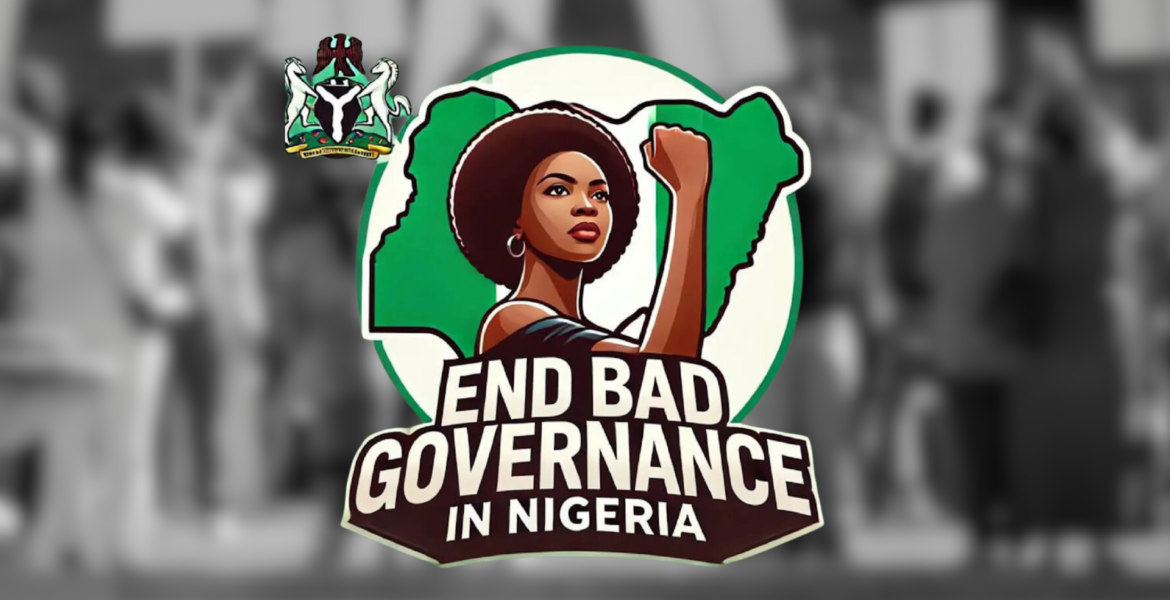
As of May 29, 2023 Lower disposable income and rising prices for goods and services (food and transportation costs, in particular) have put more pressure on consumer expenditure. However, this is a result of the reality that a number of structural problems, such as poor infrastructure, trade barriers (tariff and non-tariff), investment hurdles, a lack of trust in currency valuation, and a restricted foreign exchange capacity, limit Nigeria’s economic potential.

In an effort to allow the naira to move more freely and draw in foreign investment, the government has devalued it twice in the last year. In summary, it has lost around 70% of its value in relation to the dollar. Nigeria’s population is expanding faster than it can produce food, resulting in an 11% yearly increase in food imports.
In Nigeria, insecurity, unemployment, inflation, low income, corruption, shoddy institutions, bad administration, and insufficient economic growth are the primary causes of poverty. There is a high rate of poverty in the nation as a result of these variables’ substantial effects on the degree of poverty.
READ ALSO: The Call For A Nationwide Protest Should Have Been Avoided
The country’s democratic growth is under peril due to a faltering economy and an increase in insecurity. Nigeria must make considerable efforts to enhance national, state, and local security in the face of growing mistrust in the country’s institutions and leadership.
The macroeconomic instability of the Nigerian economy, which is mostly caused by foreign trade shocks, insecurity, and the nation’s heavy reliance on oil export revenue, is a significant concern.
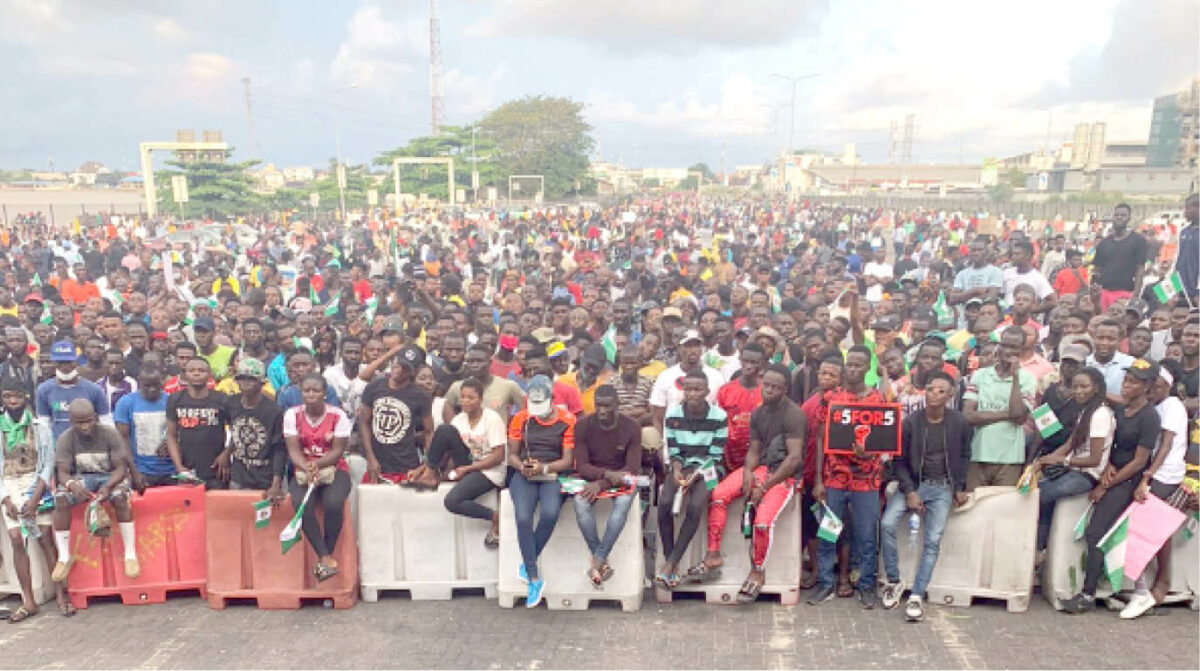
Nigeria is one of the world’s top oil producers and has the biggest population in Africa. However, the more than 200 million-person country has struggled with corruption, the economy, insecurity, mismanagement, and a weak currency. However, many believed that with President Bola Tinubu’s “Renew Hope” agenda, a transformative policy thrust intended to reposition Nigeria as a top global investment destination, things would inevitably change for the better.
Food security, poverty eradication, growth, job creation, access to capital; inclusion;, the rule of law, and combating corruption are the highlights, according to the administration’s economic point man, Wale Edun.
Although this administration redefined its priorities in November 2023 to include economic reform to achieve sustained inclusive growth, bolster national security for peace and security, increase agriculture to achieve food security, unlock energy and natural resources for sustainable development, improve infrastructure and transportation as growth enablers, prioritise social investment, education, and health as critical development pillars, and accelerate diversification through industrialisation, digitisation, creative industries, manufacturing, and innovation; and improving governance for efficient service delivery. The benefits of the current administration’s efforts appear to be accruing later than expected, as it appears that the government lacks control over the main indicators of social and economic welfare.
Food inflation has increased even as the enormous excitement that greeted this administration upon taking office in May of last year appears to have given way to despair and anger. This is despite the fact that Mr. president declared a state of emergency on food security and unveiled an immediate, short- and long-term plan for the sector. The average food prices of key staples across major cities in the country have surged by almost 100 percent since he assumed office.
READ ALSO: #EndBadGovernanceInNigeria Protest: Former Military Officers, Envoys Express Concern As Protesters Hoist Russian Flag
While some Nigerians are angry and perplexed about the country’s direction and the daily rise in prices of products and services that are out of their grasp, many question if the President truly comprehends the magnitude of the task at hand.
WHY PROTEST?
The ongoing hunger protests in Nigeria have turned violent, resulting in several deaths, property destruction, and considerable disruptions to commercial activity as several key roads have been stopped, worsening the situation.
![]()
The #EndBadGovernance protests, which have gained traction in key cities such Kano, Gombe, Yobe, Borno, Niger, Kebbi, Abuja, and other northern towns, have been marked by increased violence. In some situations, security officers’ actions sparked the violence, while in others, it was motivated by overzealous protestors or counter-protesters.
One of the most important parts of civic engagement in a democracy is having the freedom to demonstrate and interact with elected officials. However, in order to promote growth and positive change, these interactions must be conducted in a calm, impartial, and productive manner. In Nigeria, where demonstrations have occasionally turned violent, there is a rising awareness of the necessity of approaching leaders such as President Tinubu with coherence and civility. Nigerians may successfully communicate their concerns and progress their nation’s economy by embracing a holistic viewpoint that places a high value on nonviolent communication and cooperation.
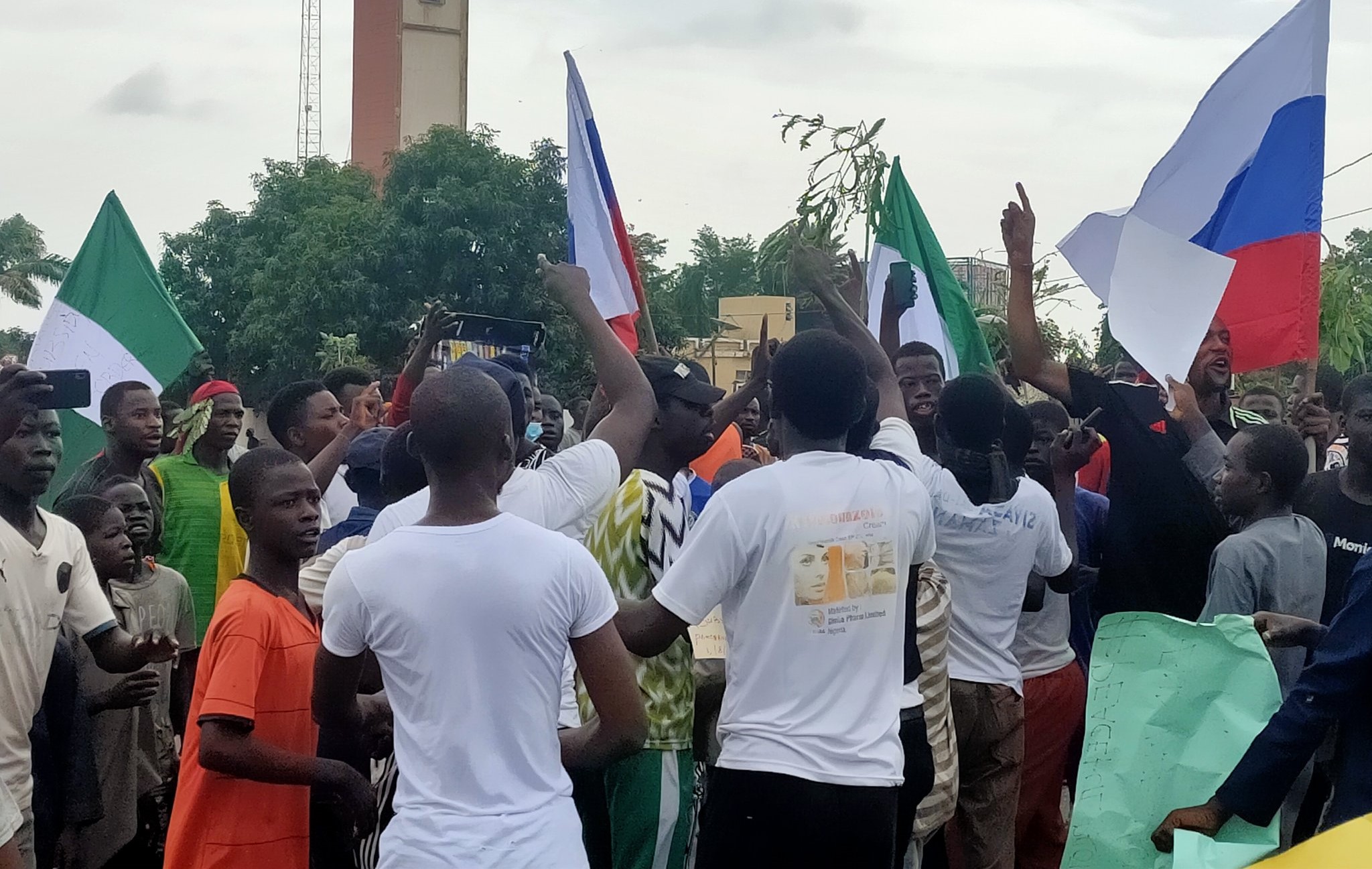
In Nigeria, people frequently use protests as a platform to air their complaints and urge the government to make changes. They are, therefore, seldom successful in bringing about long-term fixes for the issues facing the nation. Protests are ineffective in solving Nigeria’s problems for a number of reasons.

Actually, government frequently uses harsh measures to quell protests, including as assault and arresting demonstrators. Instead of bringing about the intended change, this might fuel further agitation and division among the nation; while opportunistic people or organisations may use protests to pursue their own goals, further complicating the issue and making actual change elusive.
Moreover, protests frequently focus on particular topics or occasions rather than tackling the structural issues at the root of Nigeria’s problems. Protests against police brutality (End SARS), for instance, resulted in changes within the police force, but don’t deal with the systemic problems of underlying corruption and a lack of accountability, abuse of power and respect for rule of Law.
Addressing the underlying causes of Nigeria’s issues is essential to bringing about long-lasting change in the nation. This entails combating corruption, enhancing government, and allocating funds for infrastructure and education. All sectors of society, including government, civil society, and the private sector.
The EndSARS Protest
The most populous country in Africa saw severe road closures due to protests by youth in Nigeria for almost two weeks. With slogans like “Enough is Enough,” tens of thousands of people marched against violence and police brutality.
The group’s first demands were for the disbandment of the Special Anti Robbery Squad (SARS), a notorious police unit. However, as time went on, the Protest transformed into rallies calling for police reform and an end to the nation’s poor administration.
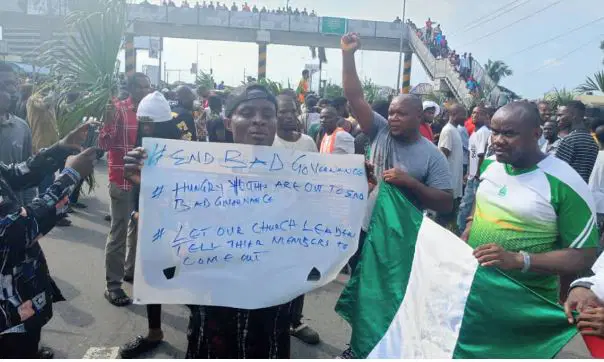
Years of frustration and fury among the disenfranchised youth eventually boiled over, and the movement quickly spread throughout the nation. However, something unimaginable happened: numerous historic buildings and cultural landmarks were destroyed during the protest, which was later hijacked by criminals.
There had been a lot of good, terrible, and downright ugly in the days preceding up to Tuesday, October 20, 2020. A smouldering path of devastation was left behind as what started out as nonviolent protests across states demanding an end to police brutality turned into anarchy with attacks on homes and property.
Protests will ultimately not be sufficient to transform Nigeria in a way that will last. Despite their potential to be an effective instrument for energising the populace and increasing awareness, protests must be supported by more extensive initiatives aimed at resolving the structural problems that pose the nation’s problems. In Nigeria’s best interest, cooperation can lead to long-term solutions that will propel the country towards a more secure and prosperous future.
Police stations were incinerated in Lagos
![Another police station set on fire in Lagos [VIDEOS] - Daily Post Nigeria](https://dailypost.ng/wp-content/uploads/2020/10/Ekwq3RmX0AE9khm.jpeg)
When the EndSARS Protest caused violence to break out throughout Lagos’ commercial hub, Olumuyiwa Adejobi, the spokesperson for the Lagos police, stated that around 17 police stations in the state had been set on fire by criminals.
Lagos State DNA And Forensic Center Damage
The Lagos State Government established the ISO 17025:2017 approved forensic DNA centre to improve public safety and support criminal and civil investigations but Hoodlums who used the #EndSARS protest to carry out widespread damage did not spare the Lagos State DNA & Forensic Centre
Nigeria’s Oldest Court Was Burnt
Hoodlums destroyed the Federal High Court in Igbosere, Lagos, which is the oldest court in Nigeria. A large number of case files were hauled off and burned in the fire.
Hoodlums Raze Oyingbo Terminal Of Lagos BRT, Destroying Over 80 Buses Valued 3.9 Billion Naira

The Mainland Local Government Area’s Oyingbo terminal, which is located behind a railway line, has a high number of new BRT buses that have not yet been assigned to routes. These vehicles were set on fire by hoodlums/protesters.
Oba Of Lagos Palace Attacked And Desecrated

The Oba of Lagos, Oba Rilwan Akiolu, had to be rescued by troops when thugs and demonstrators who had earlier set fire to the Ebute Ero police station invaded the palace.- What an act of sacrilege!
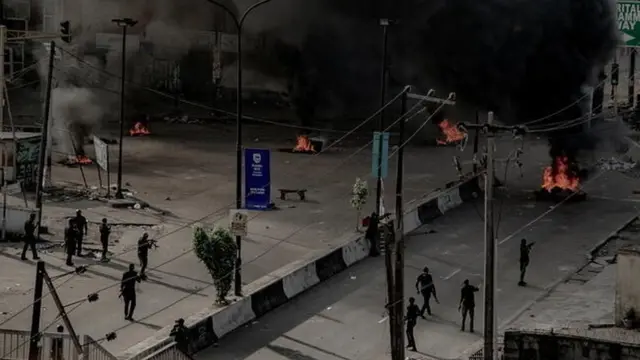
Not to mention the violent assaults on government facilities, private residences, media outlets, cars, and other targets in various districts of Lagos, including the NPA damage, the TVC fire, and the Lagos Oriental hotel
In 2024, peaceful protests across states began the #EndBadGovernanceInNigeria movement, which called for an end to the country’s bad governance. Reports of fatalities, fire outbreaks, and destruction have already been made, with a large portion of the vandalised ruins being found in Northan communities.
WHY NOT DIALOGUE?

Protests are widely acknowledged as being essential to a healthy democracy. They are seen as a means of bringing about social change; in fact, they are one of the few remaining channels for expressing your opinions outside of voting, and they are even protected by the constitution. Undoubtedly, protests have the power to influence the political conversation and set the agenda.
Young Nigerians are becoming more agitated due to the country’s alarming unemployment rate and general discontent with President Bola Tinubus’s administration. The current protests, #EndBadGovernanceInNigeria, are a manifestation of this restlessness, but are protests the solution?
Protests are a tool and a right to democracy, but they can be particularly damaging when politics are extremely polarised. This is not to say that protests should never happen or that they can’t be important to democracy sometimes. The fact is that there are unintended consequences from protests that can destroy the country if unchecked. There are many negative unintended consequences associated with protests, especially in a polarised society like Nigeria.
Freedom of association has traditionally been seen as an essential human right. But how can we tell if the government’s dictatorship or the irrational protestors are to blame when things become violent? And if the protest interferes with the freedom of others, how should the government draw boundaries on such rights?
Protests ultimately hinder progress and economic expansion, adding to the burden on the nation’s capacity to go forward. The EndSARS Protests is eye-opening.
I believe that the voices of common Nigerians impacted by issues like hunger, unemployment, and bad governance have been reflected in the ongoing #EndBadGovernance Protests. The message is clear: dialogue is a strong weapon that may help bring about significant change, not a sign of weakness. It is time for leaders to listen, act, and enact policies that will address the underlying causes of these challenges.
We need a forum where citizens and the government can converse openly and honestly, comprehend one another’s viewpoints, and decide on shared objectives in order to find a solution.
In a country like Nigeria with such a diverse population in terms of ethnicity and religion, communication is crucial to building mutual respect, unity, and trust.
Regretfully, as this protest’s early phases have shown, there are always some who look to take advantage of circumstances in order to benefit themselves. The protest’s good intentions run the risk of being derailed by the presence of dishonest people who encourage violence. Dialogue continued to be the most effective transformational tool in these trying times. It’s a chance for the public and the government to interact, learn from one another’s viewpoints, and cooperate to accomplish a shared objective.
It is imperative that both the administration and the protestors exhibit a sincere dedication to identifying and executing solutions. This calls for open communication, a readiness to hear what other people have to say, and a commitment to finding the source of the issue.
Oladele Adekunle
kunlimited01@yahoo.com



















